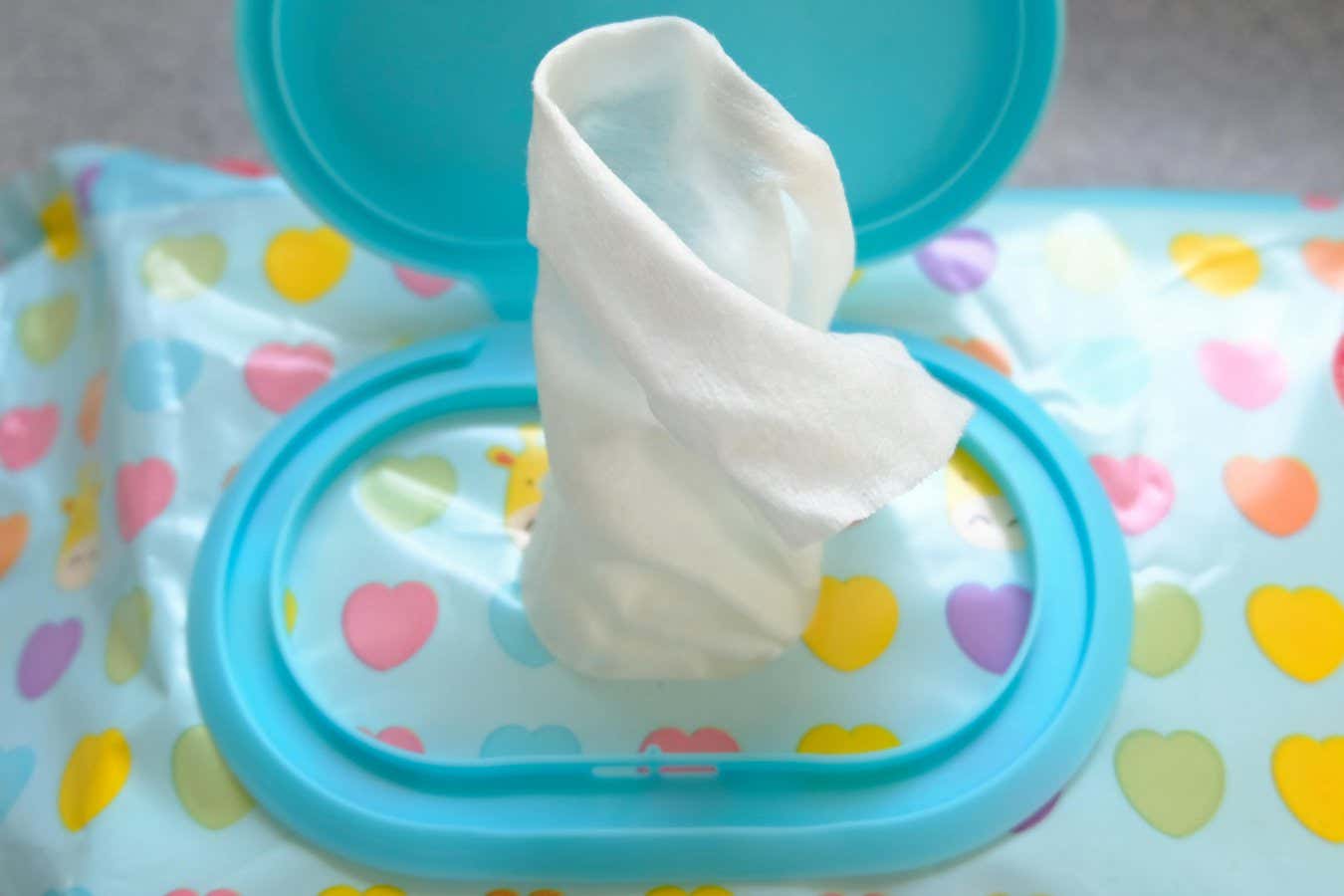Fibres in wet wipes and clothes often make their way into soil – and natural versions could be more damaging than synthetic ones
By Chris Stokel-Walker
5 November 2024
Fibres from wet wipes can get into fertilisers if they are flushed down the toilet
Linda Kennedy/Alamy
Natural fibres that are increasingly being used in wet wipes may actually do more harm to the environment than the synthetic ones they are designed to replace.
Viscose and lyocell, which are made from cellulose in wood, are commonly used in wet wipes and clothing in place of fibres such as polyester, which is primarily a byproduct of fossil fuels.
Read more
The incredible new tech that can recycle all plastics, forever
Advertisement
“They are in high street stores, so you can pick them up in your ethical conscience consumer section of fast fashion stores,” says Winnie Courtene-Jones at Bangor University in the UK.
But there is uncertainty about whether they are really better than the materials they replace. “There’s a bit of a knee-jerk reaction to move away from fossil fuel-based traditional, conventional plastics and substitute those with alternatives, and there hasn’t been much testing of those other materials,” says Courtene-Jones.
To learn more, she and her colleagues tested the impact of viscose, lyocell and polyester on soil and some of the animals that live in it. Wet wipes often make their way into wastewater treatment plants, along with microfibres that come off clothes in washing machines. They are then inadvertently spread on soil via the sludge from these plants that is used as fertiliser.
